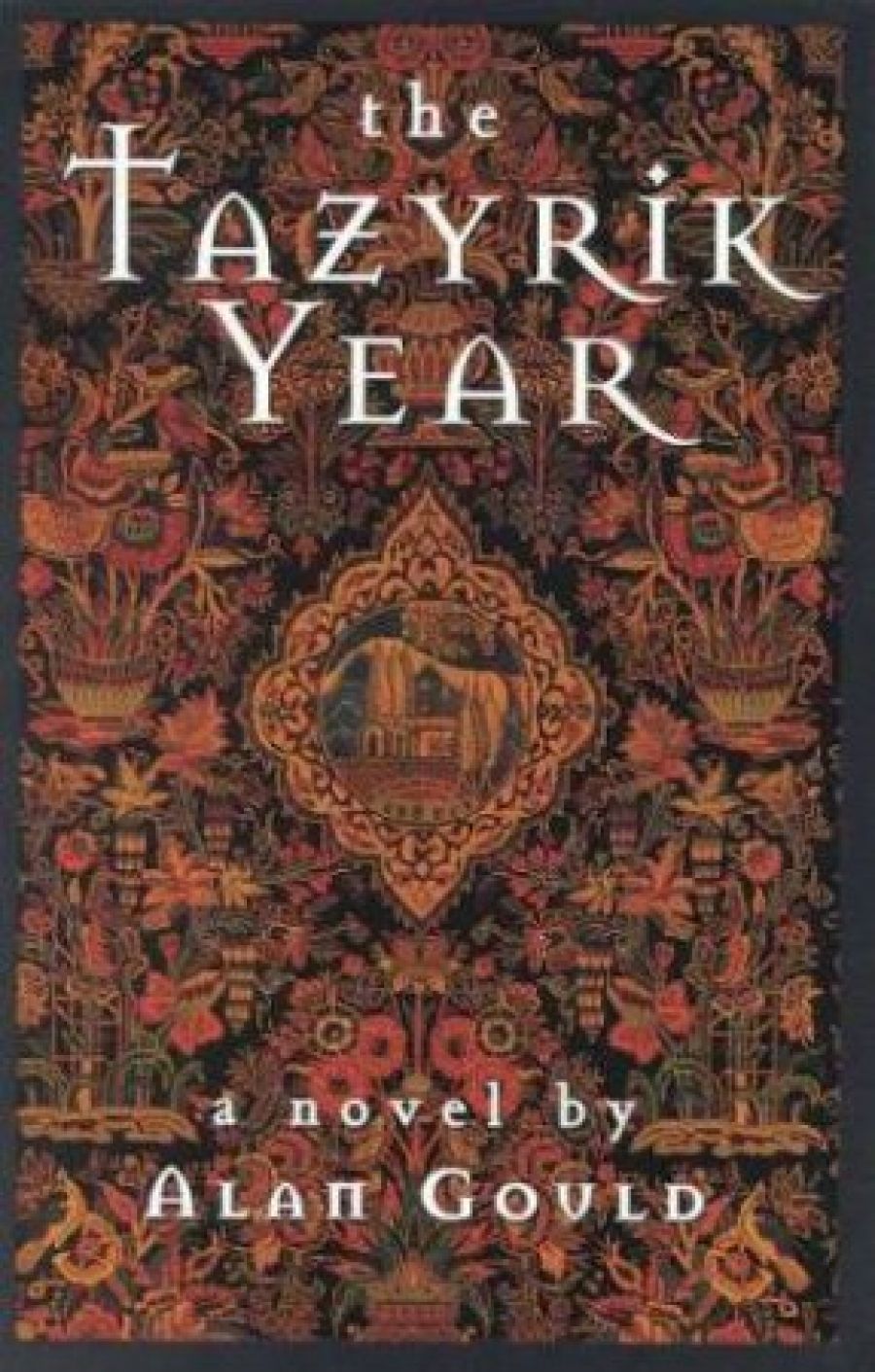
- Free Article: No
- Contents Category: Fiction
- Review Article: Yes
- Online Only: No
- Custom Highlight Text:
A man waits outside a schoolyard and watches a young girl who, it seems, is his daughter, though she doesn’t know him. What appears to be an internal dialogue between the man and the child’s mother commences, set apart from the main text. It is a self-conscious narrative manoeuvre. The narrator, Jules Pyatt, after all has a thesis in English literature behind him (abandoned). He knows what narrative is all about, and he knows he wants to tell the story of his ‘Tazyrik year’, which belongs to a period several years before, when he was in his late twenties.
- Book 1 Title: The Tazyrik Year
- Book 1 Biblio: Sceptre, $19.95 pb, 217 pp
Returning from a period of two years’ lonely wandering, Jules goes to Canberra, and takes up a postgraduate degree in medieval literature. He is interested in the idea of surveillance in a group of poems – romances and dream-visions – from the fifteenth century (that’s what he says at the beginning; later he seems better aware that the texts he mentions belong to the fourteenth century). He answers an ad and becomes the tenant of a brother and sister couple who are in their late thirties. The selection process is odd, and so too is the ménage in which he finds himself. Yet this suits him; he’s a little odd himself, and he knows it. He is always oblique to what’s going around him (the post-modernist wave in criticism has passed Jules by, for example, making him a conservative misfit amongst his postgraduate colleagues).
Vivian and Kit Kesteven are an isolated pair, but clearly comfortable in a secret world they have constructed for themselves, and which Jules gradually begins to explore. For a time, he is the observer, thinking he is seeing things they might not want him to see. In fact, the observer is observed; it becomes clear that brother and sister have a purpose for him, should he pass their little tests. His situation becomes that of some of the figures in the medieval texts he studies.
Like the dreamers and the romance knights, Jules is a man pitched into a situation he doesn’t quite comprehend. He is in the ‘strange elsewhere’, that place to which medieval dreamers go; like the romance knight Sir Gawain, he is the guest in a strange abode whose rules are foreign to him.
In a self-reflexive moment, Jules realises that being in this ménage is like being ‘watched by some authorial presence’, and he does not know whether he likes or dislikes the scrutiny. Slowly, he is inducted into Viv and Kit’s world of ‘Tazyrik’, an elaborate game begun long ago on a Tazyrik rug bought by the Kestevens’ father when he was in Kashmir. Tazyrik is ‘over the mountains’, and so comes to represent their way of expressing a private world removed from an immediate reality.
Like Jules, the traditional literary scholar, the narrative disavows this self-reflexivity and the postmodern gamesomeness to which it might lead. The Kestevens and their home do not become the kind of startling postmodern labyrinth in which, say, a John Fowles character might find himself. The novel is more about certain core humanist values and desires, and raises a number of questions along these lines. Is it right to indulge in a private and asocial world to the exclusion of a larger social world? Is there something irresponsible in the refusal of this larger world, in the pursuit of harmless but socially useless games? In one of the poems Jules writes on, there is a first-person narrator who, in a dream, encounters his dead daughter. She tries to console him for his loss, but finally he attempts to cross the river which divides them. It cannot be done; he wakes up Jules is this cross-over figure. He is weirdly solitary enough to be taken into the antisocial Kestevens’ world; but he is worldly too, and must finally make a choice about which side of the river he belongs on.
These are some of the issues which arise from the novel, but it would be wrong to represent it as an unrelenting essay on them. It is in fact rather lighter than this. It’s a deftly handled narrative, reflecting on some quite mundane concerns yet always sustaining interest through its elaboration of the Tazyrik world. It could, I think, have gone further into Tazryik. It would scarcely have worked to have gone deep into the more abstruse concerns of fourteenth-century verse, but some more intellectual investigation of Jules’ thesis would have been fascinating. The novel shares some of his own ambivalence. He gives up his work and burns it: ‘Poking about in venerable literature came to repel me. I wanted to breathe.’ This brings an end to his Tazyrik year. We learn that he has got into a successful line of business, married, had children, as if such a conventional life-narrative were incompatible with a life of intellectual investigation. It is possible to do both, isn’t it?


Comments powered by CComment